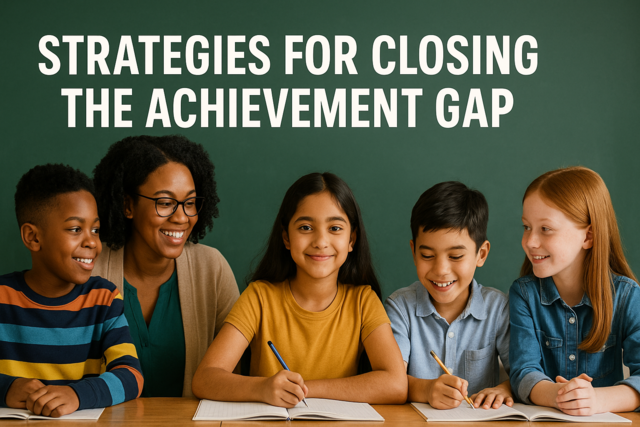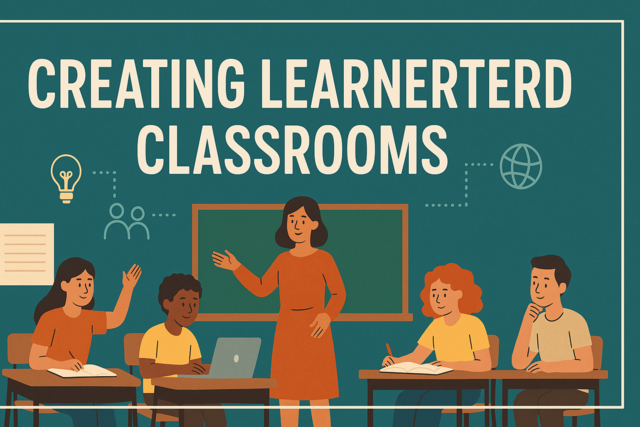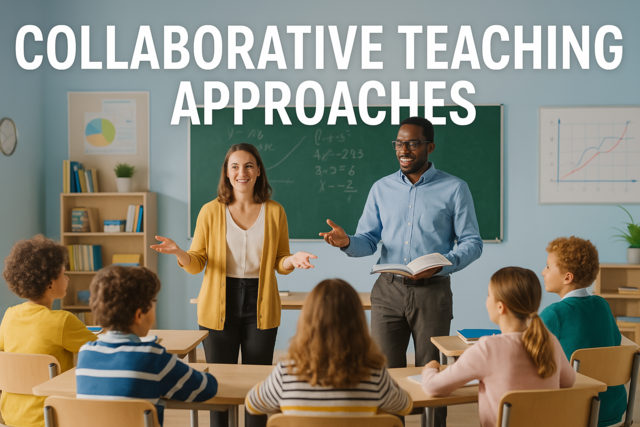Online Class: Advanced Pedagogical Techniques

no certificate
with CEU Certificate*
-
15Lessons
-
22Exams &
Assignments -
5Hours
average time -
0.5CEUs
Course Description
Imagine stepping into a classroom where every student feels valued and empowered, where technology seamlessly integrates with teaching, making learning not just more effective but truly exhilarating. Welcome to "Advanced Pedagogical Techniques," the course designed to transform your educational approach and elevate your teaching to unparalleled heights. In a world where the landscape of education is rapidly evolving, this course emerges as an imperative beacon for educators who aspire to make a significant impact. This isn't just a course; it's a journey, a reimagining of what it means to educate in the modern era.
Picture yourself in a symphony of diverse learners, each with their own tune, and you, the conductor, weaving a harmonious masterpiece from their potential. With "Adaptive Learning Strategies for Diverse Classrooms," you'll learn to tailor your methods to meet the needs of every student, crafting personalized educational experiences that resonate deeply and foster true engagement. This course doesn't just offer techniques—it equips you with the insight to recognize and nurture the unique potential of each learner.
As we dive deeper, technology takes center stage. "Incorporating Technology in Pedagogical Practices" unveils how digital tools can transform traditional classrooms. Imagine turning ordinary lessons into interactive experiences where students are not mere spectators but active participants. Virtual reality, gamification, and cutting-edge platforms will transport your classes into dynamic environments of exploration and discovery, ensuring your teaching is as innovative as it is impactful.
But that's not all. You'll explore "Culturally Responsive Teaching Methods," where embracing diverse histories and perspectives becomes the key to unlocking minds. In today's multicultural world, understanding and respecting every student's background isn't just advantageous—it's essential. This segment of the course doesn't just teach you to be inclusive; it molds you into an educator who inspires unity and empathy in the hearts of students, preparing them for a globally connected world.
Assessment and feedback, often seen as the end of learning, become the stepping stones for growth in "Advanced Assessment and Feedback Techniques." Here, you reimagine how to evaluate progress—not as a final judgment but as an ongoing dialogue that drives motivation and deepens understanding. This course empowers you to provide clear, constructive critiques that guide students to their fullest capabilities.
Our journey doesn't stop there. Step into the realm of interdisciplinary wonders with "Designing Interdisciplinary Curriculum." Imagine weaving math into music, science into art, and history into science, creating a tapestry of knowledge where connections aren't just seen—they're felt. Unleash the inherent curiosity of your students and watch them dive into learning with unprecedented enthusiasm.
And then, venture into "Utilizing Data-Driven Instruction," where numbers tell stories and insights become strategies. This course will show you how to harness data as a powerful ally, refining your approach based on clear, actionable insights that boost classroom success. You'll no longer teach in the dark but will make informed decisions that illuminate the path forward.
As the course unfolds, delve into the mind itself in "The Role of Neuroscience in Learning and Education." Understand not just how students learn but why they learn the way they do. Use this knowledge to revolutionize your teaching methods, aligning them with the brain's natural processes to make learning not just more effective but also extraordinarily engaging.
By the end of this transformative course, you're not just equipped with new skills—you're empowered with a fresh perspective. Your influence will extend beyond academic achievement to sculpt future-ready individuals capable of critical thinking and innovative problem-solving. Embrace the change and enroll today; embark on a journey that promises not just professional development but personal transformation. You're not just learning to teach better; you're learning to change lives. Be a part of the revolution—because your students deserve nothing less, and neither do you.
- Completely Online
- Self-Paced
- 6 Months to Complete
- 24/7 Availability
- Start Anytime
- PC & Mac Compatible
- Android & iOS Friendly
- Accredited CEUs

Course Lessons
Lesson 1. Adaptive Learning Strategies for Diverse Classrooms
Adaptive Learning Strategies for Diverse ClassroomsLesson 2. Incorporating Technology in Pedagogical Practices
Incorporating Technology in Pedagogical PracticesLesson 3. Culturally Responsive Teaching Methods
Culturally Responsive Teaching MethodsLesson 4. Advanced Assessment and Feedback Techniques
Advanced Assessment and Feedback TechniquesLesson 5. Designing Interdisciplinary Curriculum
Designing Interdisciplinary CurriculumLesson 6. Utilizing Data-Driven Instruction
Utilizing Data-Driven InstructionLesson 7. Fostering Critical Thinking and Problem-Solving Skills
Fostering Critical Thinking and Problem-Solving SkillsLesson 8. Effective Differentiation in Instruction
Effective Differentiation in InstructionLesson 9. Gamification and Game-Based Learning in Education
Gamification and Game-Based Learning in EducationLesson 10. The Role of Neuroscience in Learning and Education
The Role of Neuroscience in Learning and EducationLesson 11. Implementing Project-Based Learning for Deeper Comprehension
Implementing Project-Based Learning for Deeper ComprehensionThe Essential Role of Social and Emotional Learning in Modern Education
Diverse classroom settings benefit from SEL by promoting empathy and appreciation for various perspectives, supported by multicultural activities and role-playing exercises that enhance understanding and respect. Assessments tailored to SEL provide educators insights to tailor their approach, identifying unique social and emotional needs, ensuring inclusive and nurturing educational environments.Harnessing Digital Tools for Student Engagement
Tech-integrated education transforms traditional learning by leveraging virtual tools and adaptive platforms to cater to individual student needs. By immersing students in real-world scenarios, this approach bridges theoretical knowledge with practical application, fostering deeper understanding and curiosity.Social Learning Unleashed
Collaborative learning, championed by Vygotsky, emphasizes social interactions for knowledge construction, leveraged by modern digital tools like Google Workspace and Microsoft Teams to transcend traditional educational boundaries. Technology facilitates global connectivity, fostering deeper understanding and 21st-century skills such as communication, teamwork, and digital literacy through immersive, inclusive, and adaptive learning environments.Exploring the Spectrum: Understanding and Embracing Diverse Learning Styles
Understanding and accommodating diverse learning styles is crucial in creating an inclusive educational environment, where each student's unique abilities are recognized and nurtured. By tailoring teaching strategies according to the VARK model, educators can effectively maximize student potential by catering to visual, auditory, reading/writing, and kinesthetic preferences.
Learning Outcomes
- Describe how personalized learning strategies can enhance student engagement by allowing learners to progress at their own pace and receive tailored feedback.
- Identify the benefits of incorporating socio-emotional learning and cultural responsiveness in education to foster a more inclusive and understanding classroom environment.
- Demonstrate the ability to effectively evaluate, create, and communicate digital information by completing a collaborative online project that incorporates diverse digital tools and platforms.
- Define digital literacy by identifying its key components such as technical skills, critical thinking, and ethical understanding within digital environments.
- Demonstrate the use of culturally responsive teaching practices to improve student engagement and educational outcomes in a multicultural classroom setting.
- Describe how educators can develop cultural competence to create inclusive learning environments by integrating diverse cultural perspectives into the curriculum.
- Define how formative assessments differ from summative assessments in their application and purpose in classroom settings.
- Demonstrate the ability to construct a rubric tailored to a specific classroom project, incorporating clear criteria and performance levels.
- Evaluate the benefits of implementing interdisciplinary approaches in education by analyzing case studies and examples that demonstrate improved student engagement and critical thinking.
- Describe the theoretical foundations of interdisciplinary curriculum design by illustrating key educational theories and their applications in modern education.
- Identify ethical considerations and regulatory compliance measures required for managing student data in an educational setting.
- Define how formative and summative assessments can guide personalized learning strategies by analyzing student performance data.
- Demonstrate the ability to apply metacognitive strategies by reflecting on personal thinking processes and identifying areas for cognitive improvement.
- Demonstrate mastery of lesson content at levels of 70% or higher.
Additional Course Information

- Document Your Lifelong Learning Achievements
- Earn an Official Certificate Documenting Course Hours and CEUs
- Verify Your Certificate with a Unique Serial Number Online
- View and Share Your Certificate Online or Download/Print as PDF
- Display Your Certificate on Your Resume and Promote Your Achievements Using Social Media

Choose Your Subscription Plan
No Certificate / No CEUs
This course only
| Includes certificate | X |
| Includes CEUs | X |
| Self-paced |

|
| Instructor support |

|
| Time to complete | 6 months |
| No. of courses | 1 course |
Certificate & CEUs
This course only
| Includes certificate |

|
| Includes CEUs |

|
| Self-paced |

|
| Instructor support |

|
| Time to complete | 6 months |
| No. of courses | 1 course |
Certificates & CEUs
Includes all 600+ courses
| Includes certificate |

|
| Includes CEUs |

|
| Self-paced |

|
| Instructor support |

|
| Time to complete | 12 Months |
| No. of courses | 600+ |
Certificates & CEUs
Includes all 600+ courses
| Includes certificate |

|
| Includes CEUs |

|
| Self-paced |

|
| Instructor support |

|
| Time to complete | 24 Months |
| No. of courses | 600+ |
Related Courses
-
 4 hours
0.4 CEUs
Elite Ensembles: Crafting Timeless Women's Looks
+ More Info
4 hours
0.4 CEUs
Elite Ensembles: Crafting Timeless Women's Looks
+ More Info
-
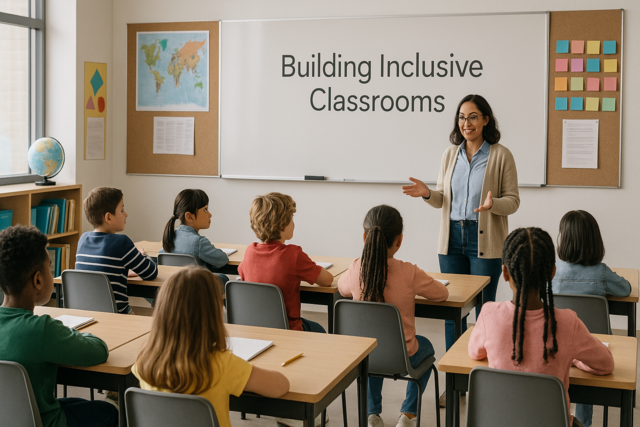 5 hours
0.5 CEUs
Building Inclusive Classrooms
+ More Info
5 hours
0.5 CEUs
Building Inclusive Classrooms
+ More Info
-
 4 hours
0.4 CEUs
Enhancing Student Engagement and Motivation
+ More Info
4 hours
0.4 CEUs
Enhancing Student Engagement and Motivation
+ More Info
-
 3 hours
0.3 CEUs
Creating and Maintaining Personal Boundaries
+ More Info
3 hours
0.3 CEUs
Creating and Maintaining Personal Boundaries
+ More Info
-
 4 hours
0.4 CEUs
Energy Medicine: Harnessing Your Body's Power
+ More Info
4 hours
0.4 CEUs
Energy Medicine: Harnessing Your Body's Power
+ More Info
-
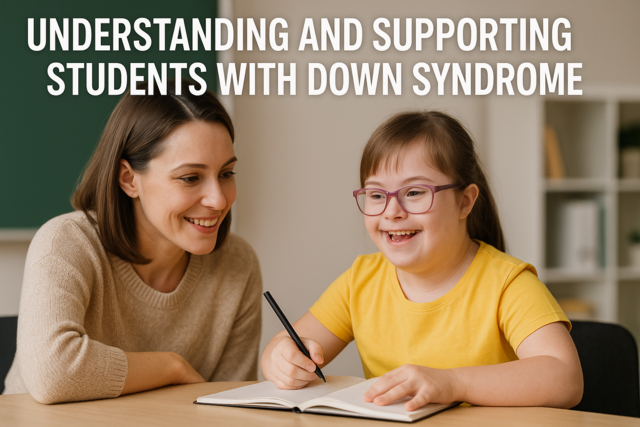 3 hours
0.3 CEUs
Understanding and Supporting Students with Down Syndrome
+ More Info
3 hours
0.3 CEUs
Understanding and Supporting Students with Down Syndrome
+ More Info
-
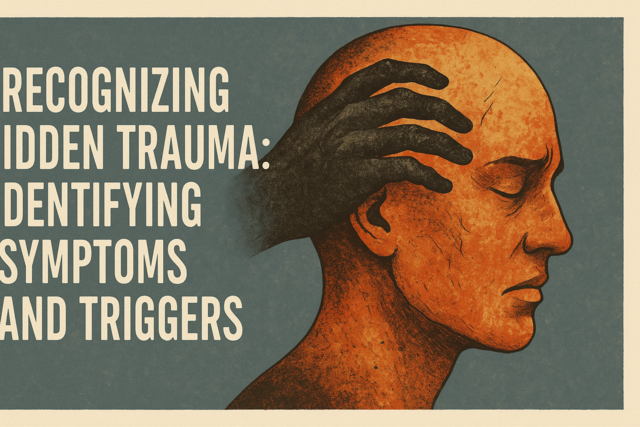 4 hours
0.4 CEUs
Recognizing Hidden Trauma: Identifying Symptoms and Triggers
+ More Info
4 hours
0.4 CEUs
Recognizing Hidden Trauma: Identifying Symptoms and Triggers
+ More Info
-
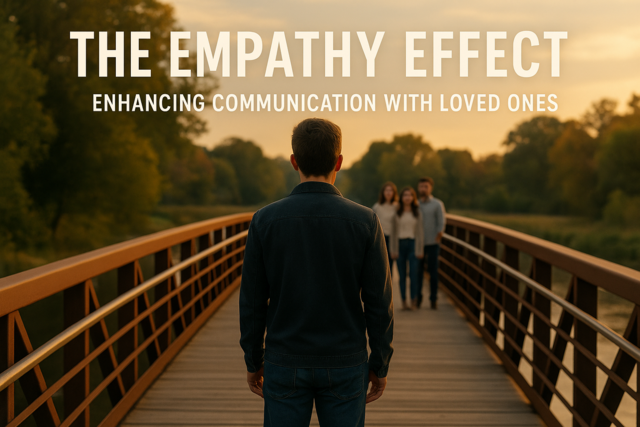 3 hours
0.3 CEUs
The Empathy Effect: Enhancing Communication with Loved Ones
+ More Info
3 hours
0.3 CEUs
The Empathy Effect: Enhancing Communication with Loved Ones
+ More Info
-
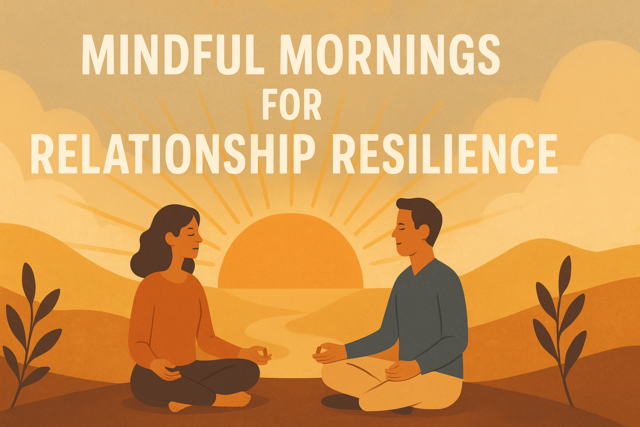 5 hours
0.5 CEUs
Mindful Mornings for Relationship Resilience
+ More Info
5 hours
0.5 CEUs
Mindful Mornings for Relationship Resilience
+ More Info
-
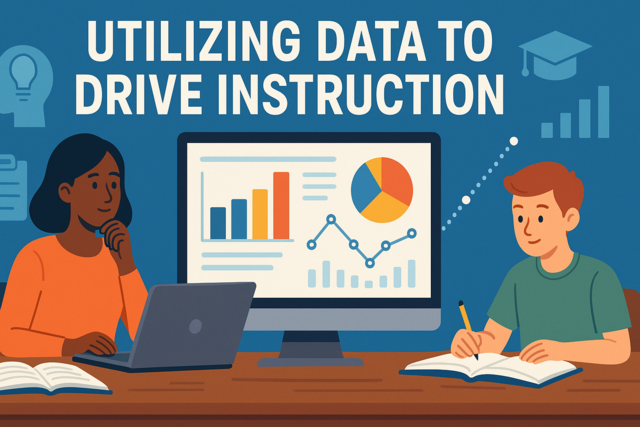 5 hours
0.5 CEUs
Utilizing Data to Drive Instruction
+ More Info
5 hours
0.5 CEUs
Utilizing Data to Drive Instruction
+ More Info
-
 5 hours
0.5 CEUs
Time Travel Mysteries and Paradoxes
+ More Info
5 hours
0.5 CEUs
Time Travel Mysteries and Paradoxes
+ More Info
-
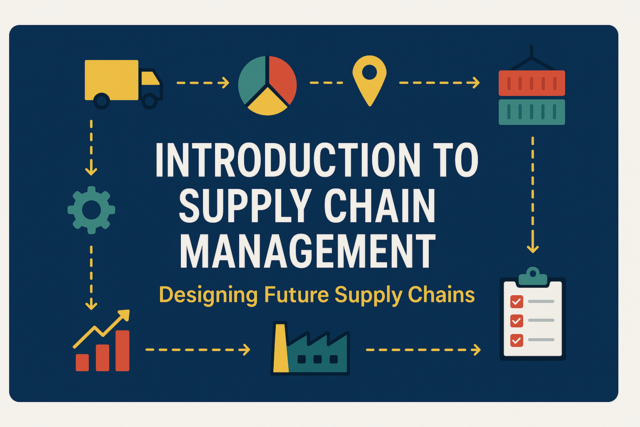 4 hours
0.4 CEUs
Introduction to Supply Chain Management
+ More Info
4 hours
0.4 CEUs
Introduction to Supply Chain Management
+ More Info
-
 3 hours
0.3 CEUs
Career Planning and Development
+ More Info
3 hours
0.3 CEUs
Career Planning and Development
+ More Info
-
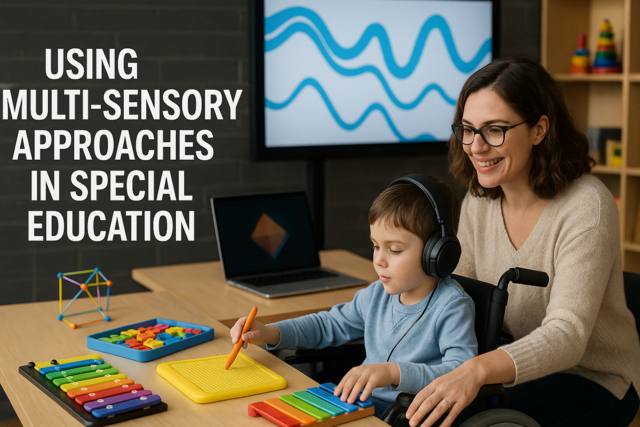 7 hours
0.7 CEUs
Using Multi-Sensory Approaches in Special Education
+ More Info
7 hours
0.7 CEUs
Using Multi-Sensory Approaches in Special Education
+ More Info
-
 7 hours
0.7 CEUs
Mysteries of the Unexplained
+ More Info
7 hours
0.7 CEUs
Mysteries of the Unexplained
+ More Info
-
 6 hours
0.6 CEUs
Conflict Resolution and Negotiation
+ More Info
6 hours
0.6 CEUs
Conflict Resolution and Negotiation
+ More Info
-
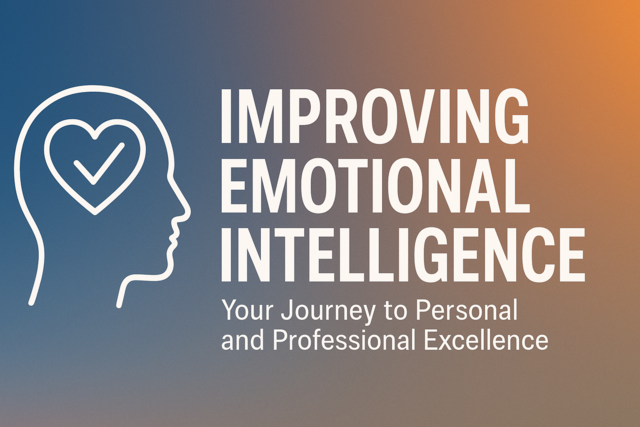 6 hours
0.6 CEUs
Improving Emotional Intelligence
+ More Info
6 hours
0.6 CEUs
Improving Emotional Intelligence
+ More Info
-
 5 hours
0.5 CEUs
Advanced Excel for Data Management
+ More Info
5 hours
0.5 CEUs
Advanced Excel for Data Management
+ More Info
-
 7 hours
0.7 CEUs
Trauma Typologies: Exploring Varieties of Psychological Wounds
+ More Info
7 hours
0.7 CEUs
Trauma Typologies: Exploring Varieties of Psychological Wounds
+ More Info
-
 6 hours
0.6 CEUs
Cryptids: Creatures of Folklore and Reality
+ More Info
6 hours
0.6 CEUs
Cryptids: Creatures of Folklore and Reality
+ More Info
-
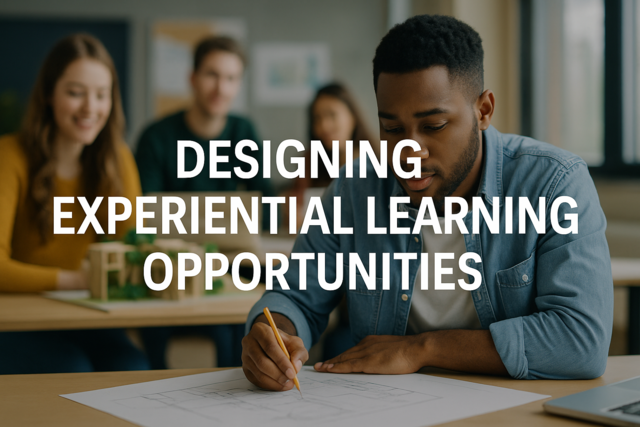 4 hours
0.4 CEUs
Designing Experiential Learning Opportunities
+ More Info
4 hours
0.4 CEUs
Designing Experiential Learning Opportunities
+ More Info
-
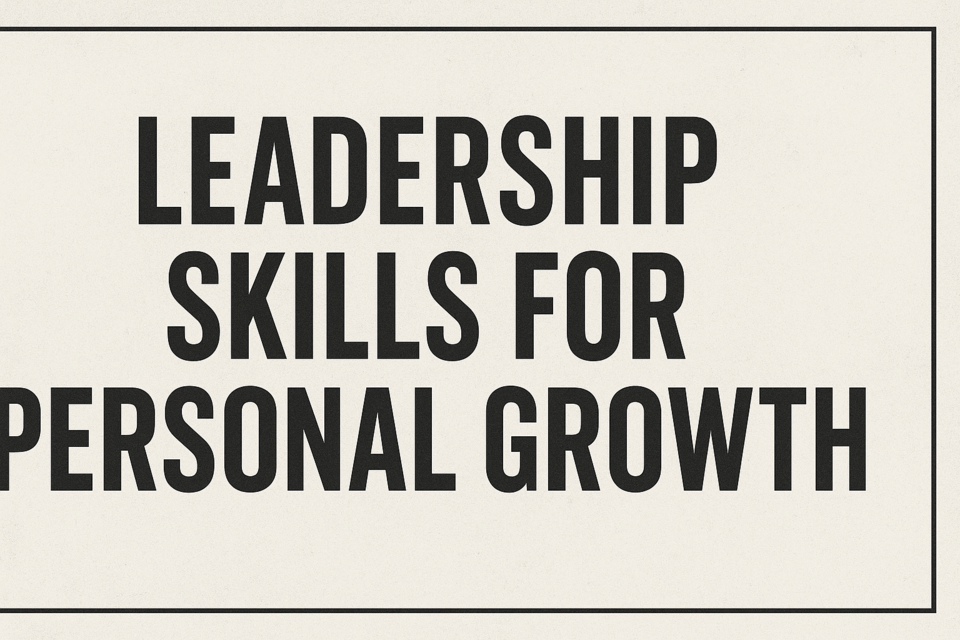 4 hours
0.4 CEUs
Leadership Skills for Personal Growth
+ More Info
4 hours
0.4 CEUs
Leadership Skills for Personal Growth
+ More Info
-
 5 hours
0.5 CEUs
Generational Patterns: How Narcissism Perpetuates Dysfunction
+ More Info
5 hours
0.5 CEUs
Generational Patterns: How Narcissism Perpetuates Dysfunction
+ More Info
-
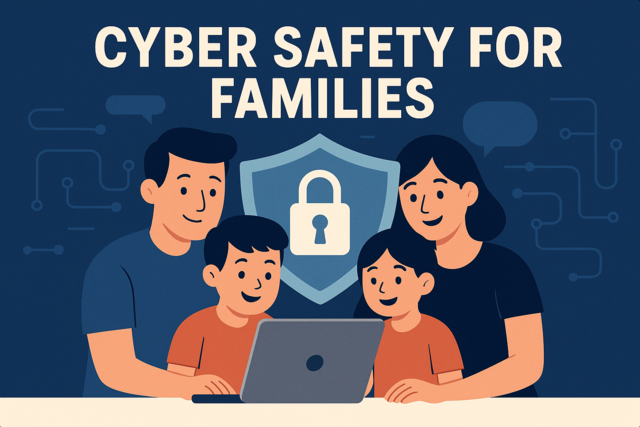 5 hours
0.5 CEUs
Cyber Safety for Families
+ More Info
5 hours
0.5 CEUs
Cyber Safety for Families
+ More Info
-
 5 hours
0.5 CEUs
Advanced Communication Skills for the Workplace
+ More Info
5 hours
0.5 CEUs
Advanced Communication Skills for the Workplace
+ More Info
-
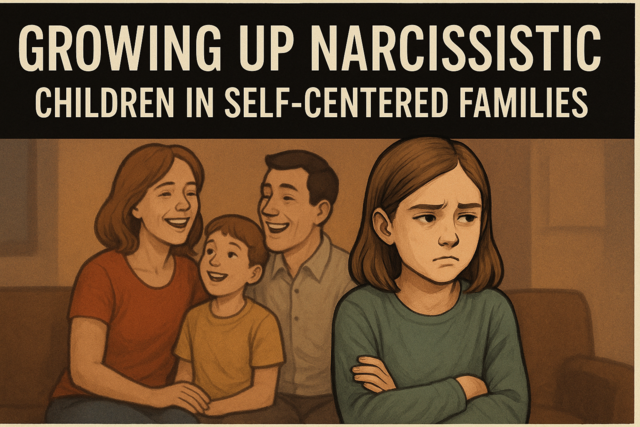 3 hours
0.3 CEUs
Growing Up Narcissistic: Children in Self-Centered Families
+ More Info
3 hours
0.3 CEUs
Growing Up Narcissistic: Children in Self-Centered Families
+ More Info
-
 5 hours
0.5 CEUs
Advanced Writing and Editing Skills
+ More Info
5 hours
0.5 CEUs
Advanced Writing and Editing Skills
+ More Info
-
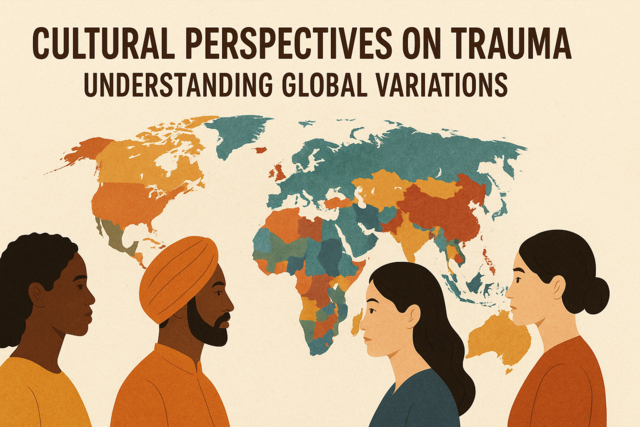 7 hours
0.7 CEUs
Cultural Perspectives on Trauma: Understanding Global Variations
+ More Info
7 hours
0.7 CEUs
Cultural Perspectives on Trauma: Understanding Global Variations
+ More Info
-
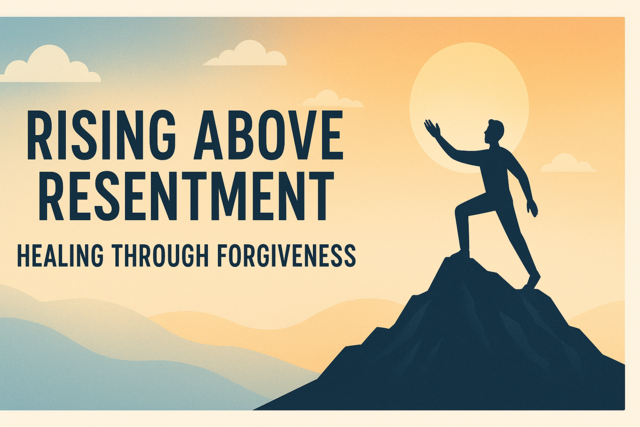 4 hours
0.4 CEUs
Rising Above Resentment: Healing Through Forgiveness
+ More Info
4 hours
0.4 CEUs
Rising Above Resentment: Healing Through Forgiveness
+ More Info
-
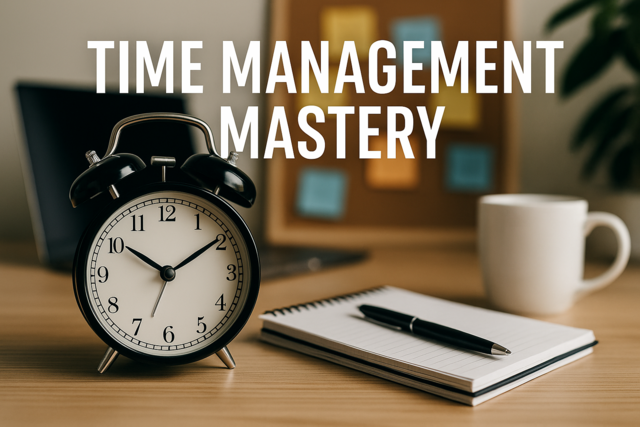 4 hours
0.4 CEUs
Time Management Mastery
+ More Info
4 hours
0.4 CEUs
Time Management Mastery
+ More Info
-
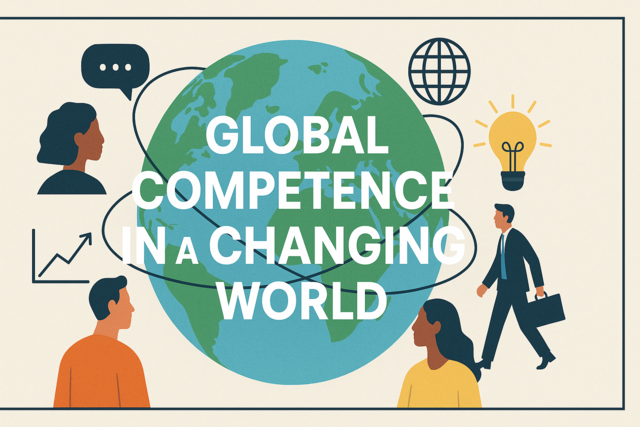 4 hours
0.4 CEUs
Global Competence in a Changing World
+ More Info
4 hours
0.4 CEUs
Global Competence in a Changing World
+ More Info
-
 4 hours
0.4 CEUs
Sales Skills and Strategies
+ More Info
4 hours
0.4 CEUs
Sales Skills and Strategies
+ More Info
-
 6 hours
0.6 CEUs
Building an Effective Personal Brand
+ More Info
6 hours
0.6 CEUs
Building an Effective Personal Brand
+ More Info
-
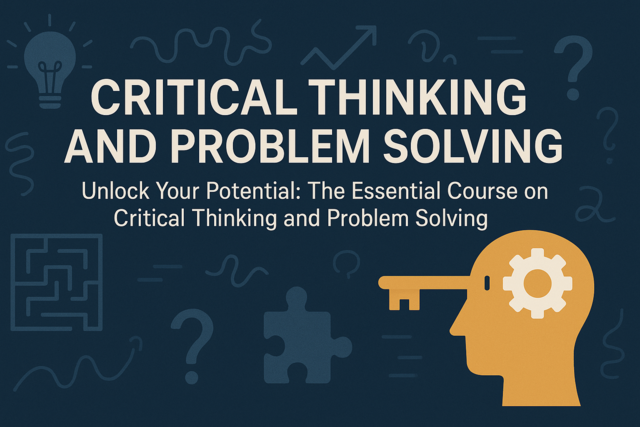 5 hours
0.5 CEUs
Critical Thinking and Problem Solving
+ More Info
5 hours
0.5 CEUs
Critical Thinking and Problem Solving
+ More Info
-
 4 hours
0.4 CEUs
Educational Equity and Justice
+ More Info
4 hours
0.4 CEUs
Educational Equity and Justice
+ More Info
-
 6 hours
0.6 CEUs
Beyond Glamour: Women's Luxury Fashion Unveiled
+ More Info
6 hours
0.6 CEUs
Beyond Glamour: Women's Luxury Fashion Unveiled
+ More Info
-
 7 hours
0.7 CEUs
Digital Friendships: Navigating Virtual Connections
+ More Info
7 hours
0.7 CEUs
Digital Friendships: Navigating Virtual Connections
+ More Info
-
 6 hours
0.6 CEUs
Legacy Building: Creating a Family Culture to Last
+ More Info
6 hours
0.6 CEUs
Legacy Building: Creating a Family Culture to Last
+ More Info


